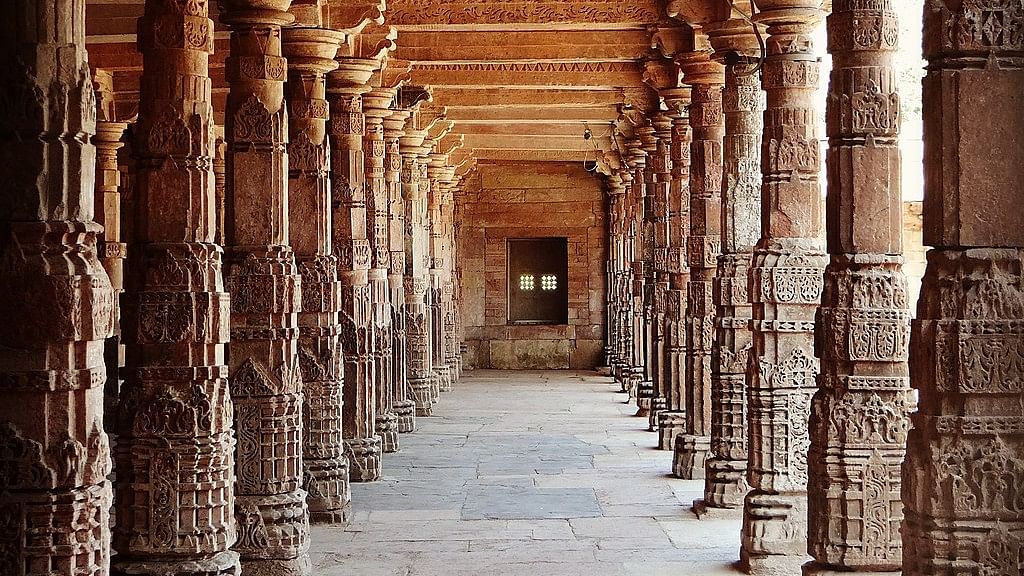
Bhojshala, or the temple of Saraswati(goddess of knowledge and education) was allegedly turned into a mosque by 'Muslim masters of Dhara.'
Credit: Wikimedia Commons/Saumysbag
The Madhya Pradesh High Court had on Monday directed the Archaeological Survey of India (ASI) to carry out within six weeks a "scientific survey" of the Bhojshala complex in Dhar district, a medieval-era structure which both Hindus and Muslims claim as their own.
Hindus consider Bhojshala, an ASI-protected 11th century monument, to be a temple dedicated to Vagdevi (Goddess Saraswati), while the Muslim community call it Kamal Maula Mosque. As per an arrangement made by the ASI on April 7, 2003, Hindus perform puja in the Bhojshala premises on Tuesdays, while Muslims offer namaz in the complex on Fridays.
All you need to know about the 11th century monument:
As per the official website of Dhar district, Raja Bhoja, the monarch of Paramara dynasty, had founded a college in Dhar which later came to be known as Bhojashala. Students from all around would come to Bhojashala for education.
Bhojshala, or the temple of Saraswati (goddess of knowledge and education) was allegedly turned into a mosque by "Muslim masters of Dhara." Remnants of the temple are still seen in the famous Kamal Maulana Mosque, reports the website.
The website claims that what now stands as a mosque was originally a temple of Saraswati which used to ornament Dharanagari, the city of palaces, temples, colleges, theatres and gardens. However, the statue of the goddess of learning is now in London Museum.
The carved pillars used over the mosque and ceiling of the prayer hall "appear to have belonged to Bhojshala."
Reportedly, these engraved slabs contain odes to the Kurmavtara or crocodile incarnation of Vishnu written in Prakrit. These inscriptions, are in the characters of the 11th-12th Century A.D.
"This leaves no doubt that the King Bhoja’s college or temple Saraswati was here and it was developed by his successors," the government webiste asserts.
(With PTI inputs)